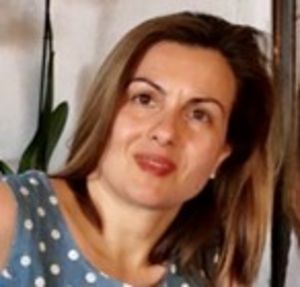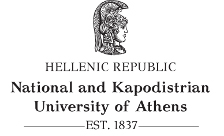PENDERI EFTHYMIA
Assistant Professor in Social Pedagogy and Applications in Preschool Education at the Department of Education Sciences in Early Childhood at the Democritus University of Thrace in Greece

Penderi Efthymia is a graduate of the Department of Preschool Education of the Aristotle University of Thessaloniki. She worked in primary education for more than 20 years. Her postgraduate studies took place at the Democritus University of Thrace. He has received training in socio-cultural animation, while her doctoral thesis concerns the investigation of the school-family relationship during preschool education.
She is an Assistant Professor at the Department of Education Sciences in Early Childhood of the Democritus University of Thrace, in Social Pedagogy and Applications in Preschool Education. Since 2016, she has been collaborating with the Hellenic Open University in the postgraduate program Educational Sciences, in the Thematic Unit "Development of the Child in the Social Environment" and in the Thematic Unit "Education: Cultural Differences and Social Inequalities". She has worked as educator in postgraduate programs at the Department of Education Sciences in Early Childhood of the Democritus University of Thrace in "Educational Sciences: Innovative Pedagogical Approaches in Multicultural Educational Environments" and at School of Early Childhood Education of the Aristotle University of Thessaloniki in "Psychopedagogy of Integration" and "Educational Sciences".
She collaborated with the Greek Institute for Education Policy as Supervisor and Scientific Coordinator for the new Curriculum for Early Childhood Education and as an external expert on the Introduction of English Language in Kindergarten. In both programs she worked promoting the sociopedagogical thinking and addressing the sociopedagogical mission of the kindergarten and the sociopedagogical role of teachers. She was also the Scientific Coordinator of the pilot implementation of the new Curriculum for Early Childhood Education and worked as a supervisor of the training program and as a principal teacher trainer.
She has participated in Greek and international research projects. Among, other projects, she participated in the international competitive research project of a consortium of 9 university institutions from 7 countries: Curriculum Quality Analysis and Impact Review of European ECEC [CARE] (European Union -FP7-SSH-2013-2 Collaborative Projects & Coordination and Support Actions), which referred to the study of curricula and quality indicators in preschool education with the aim to support educational policy in promoting whole child development and children’s right to quality education. She participated in the international competitive research project of a consortium of 17 university institutions/organizers from 11 countries (European Union (project id: 727069) H2020-EU.3.6.1.2.): Inclusive Education and Social Support to Tackle Inequalities in Society [ISOTIS], with the aim to study the educational systems, for the planning and implementation of innovative educational interventions to tackle social inequalities in education. She was a member of the core research team in the project PARTICIPA: Professional development tools to support children's active participation rights in daycare centers and kindergartens, Erasmus+ with the participation of 6 Universities and research centers from 4 European countries, which aimed to implement a training program for educators and to monitor the implementation of relevant interventions in daycare centers and kindergartens to support the active participation of children and the professional empowerment of the pedagogical staff.
Her research interests include socio-emotional development in preschool age, school-family-community collaboration, socio-cultural learning, promotion of children's rights and the professional empowerment of teachers, the design of socio-pedagogical programs in preschool education.
In the courses she teaches at undergraduate and postgraduate level, she focuses on various issues related to learning and education, the development of Educational Sciences, socio-pedagogical thinking and methodology, the promotion of children's rights and the implementation and evaluation of innovative educational programs in formal, non-formal and informal education settings, through an interdisciplinary and cross-thematic approach.
